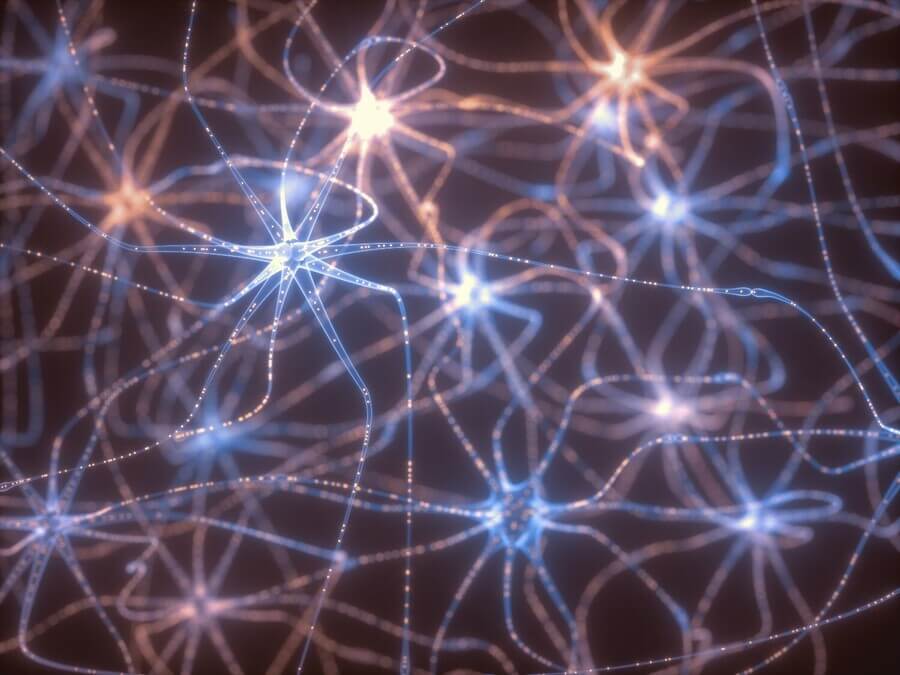“Why?”
Anyone who’s ever personally experienced addiction has asked that question. Why am I doing this to myself? Why can’t I stop that person from harming themselves? Why is this happening?
It’s a tough question to answer. If you’re strictly talking about the chemical aspect (and that label applies to alcohol, too), the question is a bit more straightforward. People develop addiction in part because of the way our brains are wired.
Drugs take advantage of the brain’s reward pathways, unleashing a torrent of the neurotransmitter dopamine when they’re used. At first, this creates an intense euphoric rush. As use continues, however, the body and brain build up a tolerance to the substance, requiring more and more of the substance to achieve the same effect.
Eventually, the combination of the substance’s effects on the brain, the memory of how the first experience felt and the need to use more and more to recreate that initial feeling creates the behavior pattern we call addiction.
As for the reasons why people use drugs, the answers are less clear. This is especially true when addiction is accompanied by a mental disorder. For researchers, it’s sort of a chicken-or-the-egg situation. Determining which disorder came first is often difficult; substance and mental health disorders don’t necessarily cause each other to develop.
What is known is this is: a combination of substance abuse and a mental disorder makes both worse. This combination is called a dual diagnosis, and it is one of the most common and persistent disorders in addiction medicine.

Numbers and Potential Causes of Dual Diagnosis
According to NIDA, the National Institute on Drug Abuse, nearly 8 million Americans deal with a dual diagnosis. Digging deeper into the numbers reveals the distribution is somewhat uneven: of the 42 million people living with mental illness, 18% also have a substance use disorder. Meanwhile, of the 20 million dealing with a substance use disorder, a higher percentage – almost 38% – also have a mental illness.
Sadly, NIDA also reports just over half of people with a dual diagnosis never receive substance treatment or mental health care.
As for root causes, researchers from the National Institute of Health (NIH) suggest there may be three:
- Risk factors such as genetic predisposition, trauma and stress
- Self-medication to alleviate the symptoms of mental illnesses
- Effects of substance abuse fueling the development of a mental disorder
Unfortunately, there are also some common mental disorders that may contribute to substance abuse. Take attention deficit hyperactivity disorder (ADHD) as an example: Research has shown the risk for developing a substance abuse issue is twice as high in people wo have ADHD. Also, many of the medications commonly used to treat ADHD, such as Adderall and Dexedrine, have a high potential for abuse.
Bipolar disorder is another example. A serious mental illness featuring severe mood swings, research published by the Substance Abuse and Mental Health Services Administration (SAMHSA) has shown between 30% and 50% of people diagnosed with bipolar disorder develop a substance use disorder during some point in their lives.
Even common mood disorders such as anxiety and depression often put people at risk. The Anxiety and Depression Association of America estimates 20% of Americans with mood disorders also have a substance disorder; NIDA estimates that percentage rises to nearly 50% over the course of a patient’s lifetime. The Mayo Clinic also warns people with depression and other mental illnesses are more likely to become addicted to drugs.
These are dire facts and numbers, but there’s also reason to hope: Dual diagnosis responds well to treatment.

Treating A Dual Diagnosis
The combined nature of dual diagnosis makes treatment a challenge. Fortunately, dual diagnosis treatment has evolved with the times. In past decades, many professionals in addiction medicine believed a sequential approach was the best option. Essentially, you had to address one issue before you took care of the other.
An example? A healthcare provider might not be willing to treat someone with a drinking issue and a depressive disorder until the depressive disorder was stabilized. Studies showed the approach wasn’t successful and often led to higher relapse rates.
That approach has been supplanted by integrated treatment. It’s possible to treat mental and substance issues at the same time; in fact, their combined nature responds well to integrated treatment. Some of the features include:
- A comprehensive approach: There’s more to treatment than a bunch of chairs in a circle. Integrated treatment covers everything from psychotherapy to medication-assisted treatment, social skills, family therapy and more.
- Harm reduction: Treatment isn’t a quick journey, and some patients benefit from a series of small steps rather than one or two large ones. A series of small successes can be a far more motivating factor in treatment rather than an expectation of quick, complete success.
- Integrated means exactly that: Dealing with multiple agencies, treatment providers and medical professionals can cause treatment to get off track. The patient has one goal, one plan and the same treatment professionals they can rely on.
- Taking a long view: There’s many kinds of people in the world, and people recover differently from one another. If it takes years to achieve recovery, that’s fine. Integrated recovery never gives up and considers recovery a journey that lasts a lifetime.
When considering treatment, it’s wise to look for a provider who understands the intertwined nature of dual diagnosis and how the conditions affect each other.
The First Step Is Always Action
A dual diagnosis can seem like an insurmountable struggle for both patient and loved ones.
It isn’t. Dual diagnosis is a condition that responds well to dynamic treatment, particularly when it’s accompanied with sober living. Being able to live away from the pressures and triggers of their former surroundings while working towards recovery both helps a person move past their issues and allows them to forge new, positive bonds with others.
SoberLivingNearYou.com is your guide to thousands of sober living solutions near you. This directory is your key to finding a sober living arrangement which meets your individual needs. Want to learn more about our directory? Contact a SoberLivingNearYou.com expert today at 866-940-0439.



